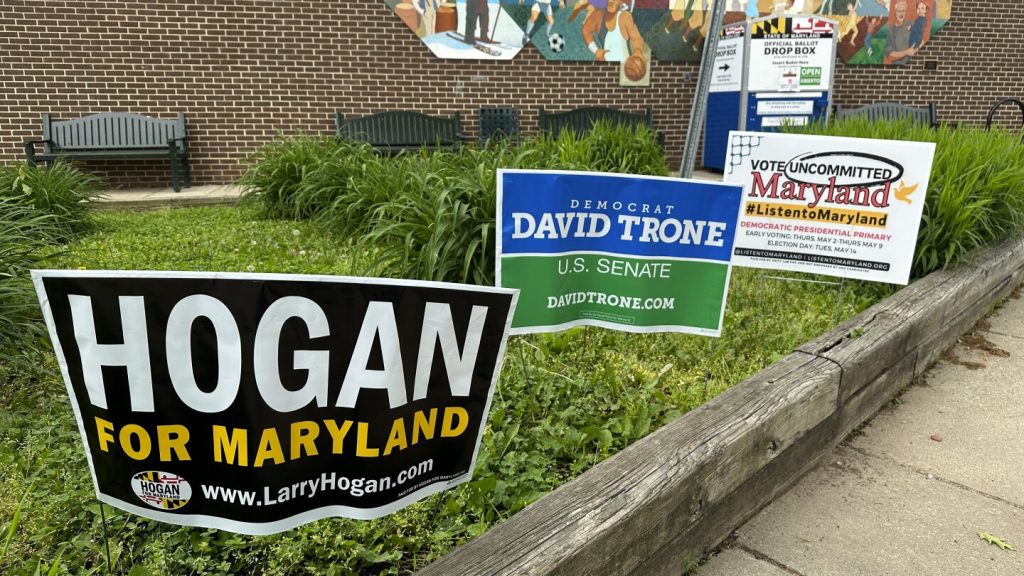Primary elections in Maryland and West Virginia on Tuesday have major implications for the fight for Senate majority this fall. In Maryland, former Republican Governor Larry Hogan is expected to dominate the GOP Senate primary, despite his criticism of former President Donald Trump. On the Democratic side, Rep. David Trone is in a contentious battle with Angela Alsobrooks for the nomination. In West Virginia, the Republican Senate primary is likely to determine Sen. Joe Manchin’s replacement, with Governor Jim Justice and U.S. Rep. Alex Mooney as leading candidates. Democrats in West Virginia are choosing between Wheeling Mayor Glenn Elliott and Marine Corps veteran Zach Shrewsbury, among others.
In the presidential primaries, President Joe Biden and former President Trump have already amassed enough delegates to claim their parties’ nominations. However, there is less drama in these primaries, with voters using their ballots to register protest votes against the candidates. Maryland progressives unhappy with Biden’s support for Israel are encouraging voters to select “uncommitted to any presidential candidate.” Meanwhile, Trump’s Republican critics cannot choose “uncommitted” but can vote for his former rival Nikki Haley, who will appear on the ballot in multiple states.
Tuesday’s elections also include candidates who were involved in the Jan. 6, 2021, attack on the U.S. Capitol. In West Virginia, former House of Delegates member Derrick Evans, who livestreamed himself participating in the attack, is running for a congressional seat. In Maryland, former Capitol Police officer Harry Dunn, who was present during the insurrection, is running for a congressional seat as well. In California, voters will decide a special runoff election, and in North Carolina, the Republican primary in the 13th Congressional District has become a one-person race after Trump endorsed candidate Brad Knott.
These primary elections are key in determining the candidates who will compete in the fall elections. In Maryland and West Virginia, the races for Senate seats have garnered significant attention, with Republicans hoping to secure pickup opportunities to potentially flip control of the Senate. The divisions within the Republican Party, particularly in relation to Trump’s influence, are evident in the primary battles in these states. Meanwhile, the presidential primaries serve as an opportunity for voters to express their dissatisfaction with the current candidates and their policies. The inclusion of candidates involved in the Capitol attack highlights the ongoing struggle to heal divisions and move forward as a nation.
Overall, the primary elections in Maryland, West Virginia, and other states present a snapshot of the current political landscape in the United States. The races for Senate seats, the presidential primaries, and the candidates involved in the Capitol attack reflect the deep divides and tensions within the country. As voters cast their ballots on Tuesday, they have the opportunity to shape the future direction of their respective states and the nation as a whole. The results of these primary elections will set the stage for the fall contests and have a significant impact on the balance of power in Congress and the dynamics of national politics.


